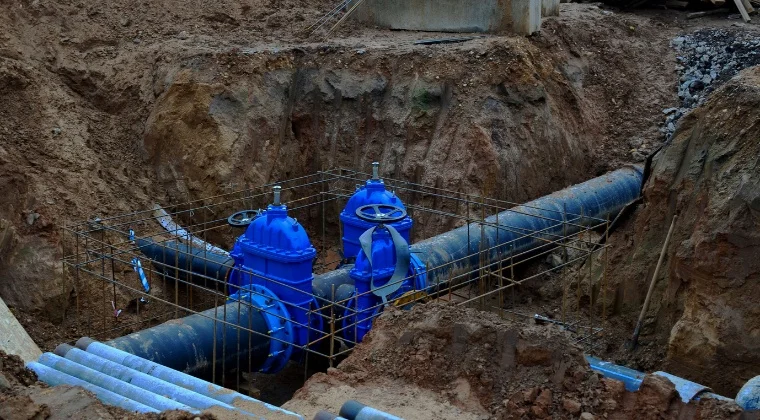
Know the Difference: Main Line vs Drain Line Explained
Understanding the difference between the main line vs drain line in your plumbing system is crucial. Main lines are the primary pipes that carry water and waste away from your home to the public sewer or a septic system. On the other hand, drain lines are smaller pipes that connect fixtures like sinks, toilets, and showers to the main line.
Knowing how these parts work and their roles helps prevent problems in the future.
At Berkeley Plumbing Pros, our hands-on experience with these systems provides valuable insights into their maintenance and function. This helps us keep everything working well for you.
To keep these lines running without issues, it's important to regularly check and maintain the main and drain lines. This can prevent big problems and keep your plumbing system healthy.
Key Takeaways
- Main line carries wastewater to the sewer system; drain line connects fixtures to the main line.
- Main line needs regular maintenance to prevent blockages; drain line requires periodic cleaning.
- Signs of main line clogs include slow drainage, gurgling noises, and sewage backup.
- Drain line removes wastewater from fixtures; proper maintenance avoids costly repairs.
- Main line care involves inspections, proper usage, professional maintenance, tree root prevention, and grease disposal.
Key Differences Between Main Line and Drain Line
The key differences between the main line and drain line in plumbing systems lie in their respective functions and positions within the entire infrastructure. The main line is the primary pipeline that carries wastewater from your property to the municipal sewer system or septic tank.
In contrast, the drain line connects individual fixtures, such as sinks and toilets, to the main line for proper waste disposal.
Maintenance benefits are vital when comparing these pipelines. Regular maintenance of the main line is necessary for preventing blockages and ensuring proper flow of wastewater. Early detection of any issues in the main line can prevent costly repairs and potential damage to your property.
On the other hand, drain lines require periodic cleaning to prevent clogs caused by debris accumulation.
Importance of Main Line Maintenance
Regular maintenance of the main line is essential to prevent blockages and guarantee the proper flow of wastewater in your plumbing system.
By taking preventative measures and implementing cost-effective solutions, you can ensure the longevity and efficiency of your main line.
| Professional Maintenance | DIY Techniques | Benefits |
|---|---|---|
| Scheduled inspections and cleaning | Using enzymatic cleaners | Early issue detection |
| High-pressure water jetting | Avoiding flushing non-biodegradable items | Improved system longevity |
| Video camera inspections | Periodic line inspections | Cost-effectiveness |
Signs of Main Line Clogs
You need to be vigilant for symptoms of main line clogs in your plumbing system. Look out for warning signs such as slow drainage, gurgling noises, or water backing up in your sinks or toilets.
These indicators can help you identify and address main line clogs before they escalate into more severe issues.
Symptoms of Clogs
Common signs of main line clogs include slow drainage, gurgling noises, and sewage backup in multiple drains simultaneously. When you notice water taking longer than usual to drain from sinks, showers, or tubs, it could indicate a blockage in the main sewer line.
Gurgling noises from drains, toilets, or pipes may suggest air is trapped due to an obstruction in the main line. Moreover, if you experience sewage backing up into multiple drains at the same time, it's a clear indicator of a main line clog.
Warning Signs to Notice
A critical warning sign to notice for identifying main line clogs is slow drainage in sinks, showers, or tubs. Early detection of this issue can prevent major plumbing problems.
When you observe water taking longer than usual to drain, particularly in multiple fixtures, it could indicate a blockage in the main sewer line. Moreover, gurgling sounds coming from drains, water backing up in other drains when using a specific fixture, or water pooling around floor drains are all warning signs that action is needed to address a potential main line clog.
To prevent extensive damage and costly repairs, it's vital to recognize these warning signs promptly and take appropriate measures. Ignoring these indicators can lead to sewage backups, foul odors, or even structural damage to your property.
Understanding Drain Line Functionality
Let's start by understanding the primary function of a drain line within your plumbing system.
The drain line is responsible for carrying wastewater away from your home, preventing backups and maintaining proper sanitation.
Regular maintenance of your drain line is essential to guarantee its peak functionality and prevent costly repairs in the future.
Drain Line Purpose
Understanding the functionality of the drain line is important for maintaining efficient plumbing systems in residential and commercial buildings. The drain line serves a critical role in removing wastewater from sinks, showers, toilets, and other plumbing fixtures, directing it away from the property to prevent flooding and water damage. Proper function of the drain line is crucial for ensuring a hygienic and safe environment.
When the drain line malfunctions, issues such as slow drainage, gurgling noises, foul odors, or sewage backups may occur. Troubleshooting these problems promptly is necessary to prevent further damage to the plumbing system and the property.
Drain Line Maintenance
To maintain an efficient plumbing system, it's vital to regularly inspect and address any issues with the functionality of the drain line. Preventative measures play a key role in guaranteeing the smooth operation of your drain line. Simple practices such as avoiding the disposal of grease, coffee grounds, and large food particles down the drain can prevent clogs and blockages. Proper cleaning is also important.
Regularly flushing the drain with hot water and using a mixture of baking soda and vinegar can help break down buildup and keep the line clear.
For long-term solutions, consider seeking professional help. A plumber can conduct a thorough inspection of the drain line, identify any potential issues, and provide expert recommendations to prevent future problems. Professional drain cleaning services can remove tough clogs and buildup that simple home remedies may not address effectively.
Common Drain Line Issues
When dealing with common drain line issues, it's important to identify the root cause promptly to prevent further complications. Some common causes of drain line problems include hair buildup, grease accumulation, and foreign objects getting lodged in the pipes.
To prevent these issues, regular maintenance such as using drain covers and avoiding pouring grease down the drain can be effective prevention strategies.
If you encounter a clogged drain line, there are DIY solutions you can try before seeking professional help. One option is using a mixture of baking soda and vinegar followed by hot water to break down blockages. Another DIY method involves using a drain snake to physically remove the obstruction.
However, if these methods don't work, it's advisable to contact a professional plumber to address the issue efficiently.
Tips for Main Line and Drain Line Care
For proper maintenance of your plumbing system, it's imperative to implement effective care strategies for both the main line and drain line. Taking preventative measures and knowing troubleshooting techniques can help you avoid costly repairs down the line.
Here are some tips to keep your main line and drain line in top condition:
- Regular Inspections: Perform routine checks on your main line and drain line to catch any issues early on. Look for signs of leaks, clogs, or unusual noises that may indicate a problem.
- Proper Usage: Be mindful of what goes down your drains. Avoid flushing non-biodegradable items or pouring grease down the sink to prevent blockages in your drain line.
- Professional Maintenance: Consider scheduling regular maintenance with a professional plumber to make sure your main line is clear of any obstructions and functioning correctly.
Frequently Asked Questions
Can Tree Roots Cause Clogs in Main Lines?
Yes, tree roots can cause clogs in main lines. Root intrusion is a common issue that necessitates professional solutions. Regular maintenance and professional inspections can help guarantee blockages are prevented and your main lines function properly.
Does Flushing Chemicals Prevent Drain Line Clogs?
Flushing chemicals may offer short-term relief for drain line clogs, but their long-term effectiveness is debatable. Consider professional maintenance as a cost-effective and environmentally friendly alternative. Chemicals can harm pipes and the environment.
How Often Should Main Lines Be Inspected?
To maintain plumbing integrity, regularly inspect main lines. Check for slow drainage, gurgling sounds, or water backing up. Experts recommend annual inspections to catch potential issues early and prevent costly repairs.
Final Thoughts
Differentiating between main lines and drain lines is crucial for a well-functioning plumbing system. It's important to regularly check the main line to avoid blockages that can disrupt proper wastewater flow.
Knowing how drain lines work and tackling issues quickly is key to preventing clogs and backups. By keeping up with these maintenance tips, property owners can dodge expensive repairs and keep their plumbing running smoothly.
If you prefer having professionals handle it, Berkeley Plumbing Pros is here to help. You can reach us at (877) 959-6069, serving Berkeley and the surrounding areas.

